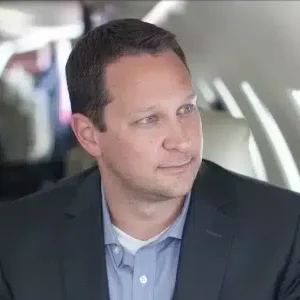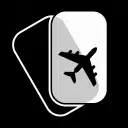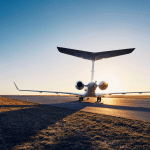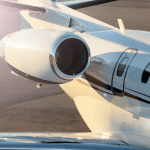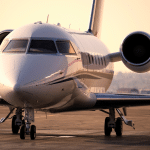The Physics of FlightJets in the Air: The Science of Flight
For many years, we have wished we could fly. Though people do not have the ability to fly through the air using just their bodies, we have created things such as hot air balloons, helicopters, and airplanes, that allow us to glide through the air. People such as Amelia Earhart and the Wright brothers, have had a huge impact on the flight industry. Traveling by air is now common, with people using airplanes and other aircraft to travel all over the world but do you know how flight works? What keeps an airplane in the air? Below, we will explore the science and principles of flight.
Flight requires four main forces including thrust, lift, weight, and drag. These four forces affect the flight abilities of planes and even birds. Force is defined as a pull or a push and unbalanced forces create the acceleration that moves something in the direction of the force acting on the object.
Lift and Weight
Gravity is the force that attracts all things to the surface of the Earth, and keeps everything from floating into space. The pull of gravity is called weight force. Birds and planes are able to produce the amount of lift force needed to oppose weight force. The air moving under and over the wings creates lift and is the force that acts upwards against the weight force.
Drag and Thrust
A plane or other flying object’s power source provides thrust. For birds, the thrust would be muscles while engines would provide the thrust for airplanes. Thrust is a force that works to move an object forward. Drag is the force that works against thrust. Drag is the opposite of motion and is caused by resistance from the air. How much drag is created by an object depends on it’s shape, the speed at which the object is traveling, and the density of the air. Thrust is actually able to overcome the force of the drag.
The Science of Flight
When an airplane is in flight, there is a constant tug of war happening between thrust, drag, lift, and weight. The ability to fly depends on these four forces. The lift sources must be bigger than the weight force and the thrust must be greater than the drag. Lift and drag occur because of the movement of a plane through the air, and these forces are called aerodynamic forces. Weight, or gravity, pulls down on a plane, and opposes the lift that is created by air that flows over the wings. The engine propellers create thrust and oppose drag that is caused due to air resistance. When an airplane is taking off, the lift must be able to counteract the weight and the thrust must counteract the drag.
Once a plane is in the air and flying at a constant speed, the weight force downwards equals the lift force upwards, keeping the plane at a consistent height. The thrust force forward also equals the opposing force of the drag, so the plane stays at the same speed. When the forces are unbalanced, the plane will slow down, speed up, or change direction towards the biggest force. A good example of this is when a plane’s engine creates more thrust. This allows the plane to accelerate, increasing the speed of the air moving past the wing, which also increases lift, allowing the plane to gain altitude.
The same principles of flight applies to birds, airplanes, and other flying objects. Airplane technology has come a long way since the first aircraft was flown. The Wright brothers are generally credited with not only flying, but inventing, and building what the world considered the first successful airplane.
Learn More About the Science of Flight
- NASA – The Dynamics of Flight
- The Principles of Flight
- How Things Fly – Air in Motion
- How Do Airplanes Fly?
- The Physics of Flight – Bernoulli’s Principle
- The Wonder and Science of Flight
- The Four Forces of Flight
- Bernoulli’s Paper Airplane Experiment
- The Forces of Flight Interactive
- Aerodynamics – What Makes Things Fly?
Are you ready to book your Atlanta and New York charter flight yet?
Our friendly, expert air charter agents are here to answer questions or start your quote today. Don`t wait, call now and we'll get you on your way to your destination!
Call 888-593-9066
